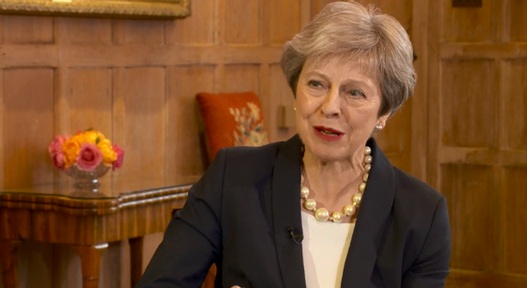Social care must wait till 2020 for money while NHS gets £20bn
Care leaders have expressed their anger over social care having to wait until 2020 for extra money, despite the Prime Minister promising the NHS £20bn more a year over five years as a 70th birthday present.

Prime Minister Theresa May has announced the NHS budget of £114bn will rise by 3.4 per cent annually on average, partly funded by a ‘Brexit dividend’ and taxes. However, it was not good news for social care as extra funds for the sector will not be announced until the Autumn Spending Review and so will not benefit the care sector until 2020.
NHS and social care should be ‘partnership of equals’
Over the last seven years, spending on social care has fallen by eight per cent in England. In response to Theresa May’s announcement, Vic Raynor executive director of the National Care Forum, which represents care providers, said: “The long-term solutions to either health or care should not be seen in isolation.
“It is imperative that all further planning, announcements and strategies no longer just talk about integration, but ensure that it is a meaningful partnership of equals. This would be the ultimate birthday present for communities across the country.”
According to a budget survey by Association of Directors of Adult Social Services (ADASS), the funding gap facing social care is set to exceed £2 billion by 2020. ADASS has warned that a third of councils have seen care providers close or cease to trade in the last six months.
Glen Garrod, President of ADASS called it “deeply disappointing to see no further investment in social care in this settlement”. He said: “Putting money into the NHS without putting it into social care is like pouring water down a sink with no plug in.”
Six months after the Department for Health was re-named to include social care, Mr Garrod said a funding settlement offering money for health but very little for social care “avoids tackling the challenges in our care services, the frailty of social care providers and communities and, in turn, results in further pressure on our hospitals."

ADASS also said the stark contrast between the pay of NHS nurses and doctors and the wages of social care workers “who do everything they can to help older and disabled adults live as independently as possible without seeing the salary increases that NHS staff do" creates "an imbalance which must be addressed.”
May: 'There isn’t the place in a care home available for them'
Announcing the extra £20bn birthday gift for the NHS, the Prime Minister said in an interview on Sunday (17 June) with the BBC’s Andrew Marr: “Some people may remember seeing a figure on the side of a bus a while back of £350 million a week, well I can tell you what I’m announcing will mean that in 2023/24, there will be about £600 million a week more in cash going into the NHS.”
While announcing no extra funding for social care, Mrs May said: “It’s absolutely right, we must recognise the impact that social care has on the NHS; we need to ensure that in dealing with social care it doesn’t put added pressures on the NHS. We need to see this long term plan for the NHS.
“We’ve already put £2m extra into social care as we’ve seen the need there. Of course there’s a link between social care and the NHS. I recognise they need to work together. What people see is that elderly people are often kept in hospital longer than they need to be because there isn’t the place in a care home available for them.”
’Sink or swim together’
Cllr Izzi Seccombe, chairman of the Local Government Association’s (LGA) Community Wellbeing Board, said the lack of funding for social care, which is "at breaking point" makes it "harder to keep people out of hospital and to help those who have to be admitted to return home with the support they would wish for.”
“Funding one service in isolation can’t prop up the others”, was a key finding from a report published on 15 June by a coalition of 14 charities including Age UK.
Called ‘Destined to sink or swim together: NHS, social care and public health’, the report by the Richmond Group warns if the NHS and social care “aren’t all funded appropriately, they risk collapsing altogether.”
Chris Askew, chief executive of Diabetes UK (and chair of the Richmond Group of Charities) said: “Unless we also fill the funding gaps in social care and public health, pumping money into one aspect of our health and social care system won’t make a sustainable difference. It’s a case of sink or swim together.”
Latest News Analysis
 04-Sep-19
Extra £1.5 billion announced for social care in Chancellor's Spending Review
04-Sep-19
Extra £1.5 billion announced for social care in Chancellor's Spending Review
 02-Jul-19
Department of Health forced to rethink care homes' nursing rates after legal challenge
02-Jul-19
Department of Health forced to rethink care homes' nursing rates after legal challenge
 18-Jun-19
Overnight care workers forced to sleep in offices and told 'bring your own bedding'
18-Jun-19
Overnight care workers forced to sleep in offices and told 'bring your own bedding'
 14-Jun-19
Back in the closet: Third of care home staff have had no LGBT+ awareness training
14-Jun-19
Back in the closet: Third of care home staff have had no LGBT+ awareness training
 11-Jun-19
PM candidates on social care: Rory Stewart calls fixing care an 'unfinished revolution'
11-Jun-19
PM candidates on social care: Rory Stewart calls fixing care an 'unfinished revolution'